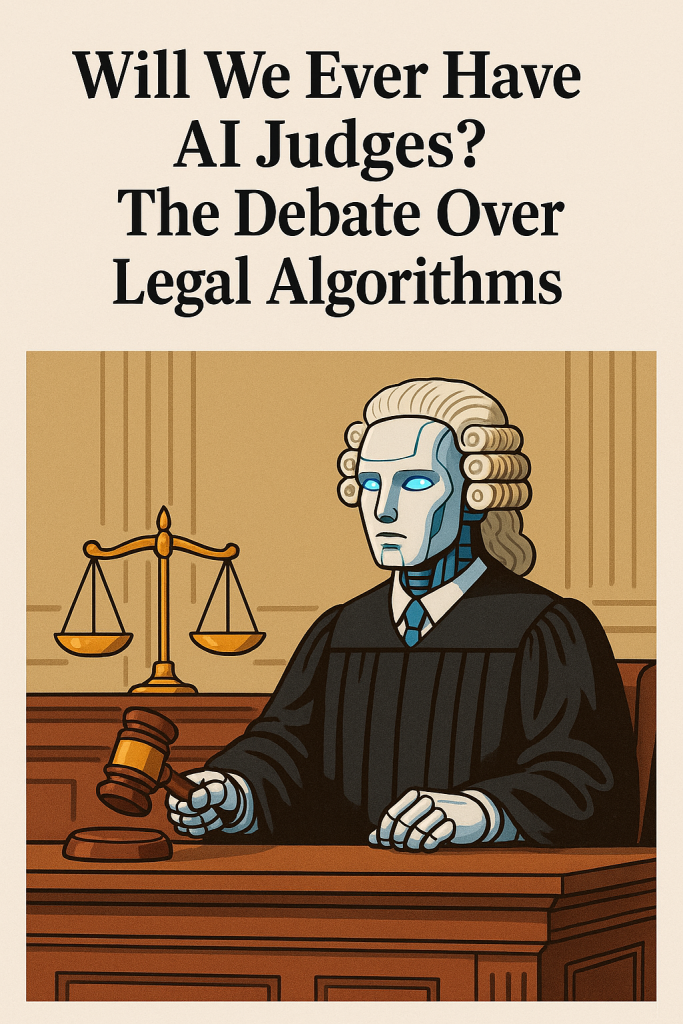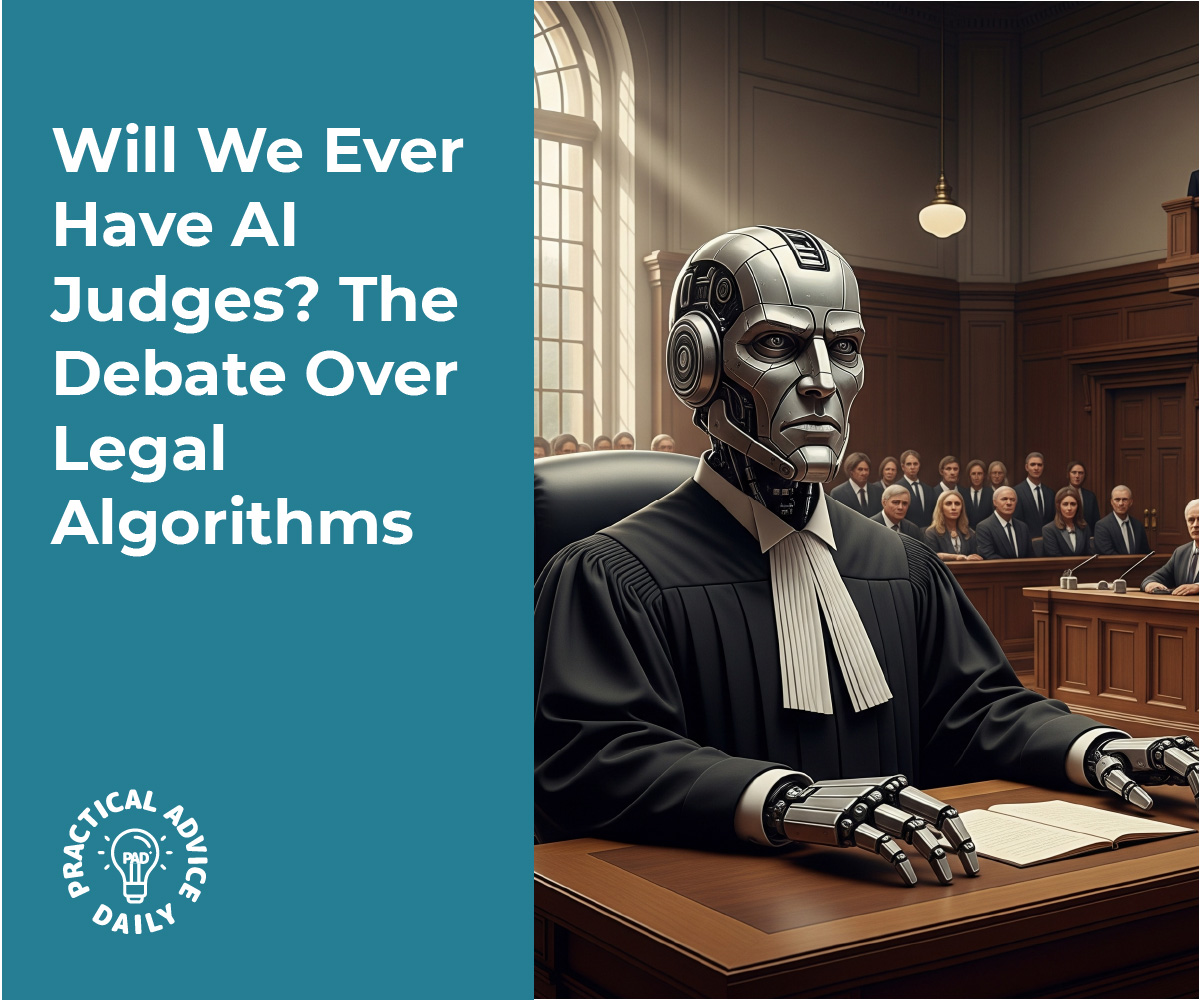Artificial intelligence (AI) is showing up in more places than ever—from smart home devices to medical tools. But could it one day take on the serious job of a judge in a courtroom? It might sound like science fiction, but some countries are already using AI in small ways to help with legal decisions.
In this article, we’ll explore what AI judges could mean for the future of justice. We’ll look at what’s already happening today, what experts think about it, and what concerns people have. Don’t worry if you’re not tech-savvy—this guide is designed to be easy to understand and helpful.
Table of Contents
Key Takeaways
- AI is already used in some legal areas, but not as full judges.
- Supporters say AI could help courts work faster and reduce bias.
- Critics worry that AI lacks fairness, empathy, and human judgment.
- There are big legal and ethical questions about replacing human judges.
- The idea of AI judges is still mostly in the future, not the present.
Can AI Really Make Legal Decisions?
AI in law isn’t a new idea, but its role is still quite limited. Today, AI tools are used in areas like:
- Sorting legal documents to help lawyers prepare cases
- Predicting case outcomes based on past court decisions
- Risk assessments that help judges decide if someone can be released before trial
These tools can save time and may help courts handle their busy schedules. However, they don’t actually replace judges. They’re more like assistants behind the scenes.

Real-World Examples
- United States: Some courts use AI risk assessment tools when setting bail or sentencing. These programs look at data like age and past arrests to suggest a decision.
- China: Courts in some cities use a system called “Smart Court,” which includes chatbots and software that helps manage simple cases.
- Estonia: The country has experimented with using AI to settle small claims (under €7,000), though human judges still oversee the process.
What Would an AI Judge Look Like?
When people talk about an “AI judge,” they imagine a computer system that can look at the facts of a case, apply the law, and make a fair ruling—just like a human judge would.
But there’s a big difference between helping a judge and being the judge. Human judges consider many things that are hard to program, like:
- Tone of voice
- Facial expressions
- Moral judgment
- Life experience
AI systems rely on data and patterns. They don’t understand human feelings, and they can’t explain their decisions in the same way a person can.
The Case For AI Judges
Supporters of AI in legal systems point to some possible benefits:
- Faster decisions: AI could speed up court cases, which often take months or years.
- Lower costs: Fewer delays and simpler procedures could reduce legal fees.
- Less bias: Some believe AI could remove personal prejudice from decisions, since computers don’t have feelings or backgrounds.
- Consistency: AI could apply laws the same way every time, leading to more predictable results.
Imagine if every speeding ticket case in a city was reviewed by the same AI tool. The idea is that everyone would be treated equally, regardless of race, gender, or income.
The Case Against AI Judges
But there are many reasons people are cautious, or even strongly opposed:
- Bias in the data: AI systems learn from past cases. If those cases included unfair outcomes, the AI may repeat them.
- Lack of transparency: It’s often unclear how an AI made its decision. This is sometimes called a “black box.”
- No human understanding: A judge might show mercy based on someone’s personal situation. AI can’t do that.
- Accountability issues: If an AI makes a mistake, who’s responsible? You can’t put a computer on trial.
Some experts believe using AI in sensitive cases—like child custody, criminal sentencing, or refugee status—could be dangerous or unjust.
What Does the Future Hold?
AI judges won’t be taking over anytime soon. Most legal experts agree that machines can support judges but shouldn’t replace them. The future will likely include:
- More use of AI for simple tasks, like traffic tickets or small claims
- Human judges using AI tools to help them make informed choices
- Strict rules to make sure AI is fair, explainable, and safe
Laws and legal systems tend to move slowly, and for good reason. When it comes to justice, people want to be sure decisions are thoughtful, fair, and humane.
Final Thoughts
The idea of AI judges raises big questions about how we want our legal systems to work. While technology may help make courts more efficient, most experts agree that human judgment and compassion are still essential in the courtroom.
It’s an exciting and important conversation—but one that needs care, caution, and a deep respect for justice.
Curious to learn more? Check out our beginner’s guide to AI and how it’s used in everyday life.
